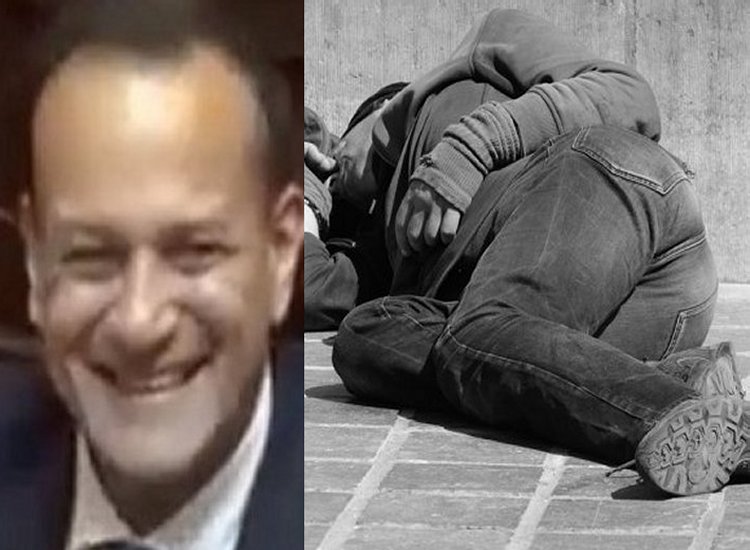

According to the Irish Refugee Council, the housing crisis for asylum seekers has been described as “a new low” in the history of refugee protection in Ireland.
A report by the charity detailed the escalation in homelessness over the past five months, with hundreds of people forced to sleep outdoors.
In January, the government stopped admitting people at the Citywest transit hub, leaving more than 1,300 people who had arrived in search of international protection without an offer of shelter upon arrival, reports RTE.
In its latest report, IRC detailed its experience of sleeping on the street out of fear for one’s safety with no guidance on where to go or what to do.
Despite warnings late last year and early this year, the charity said government agencies had not adequately prepared for the situation.
IRC said the decision to help two groups of people affected by homelessness with different policies because of their different status or nationality could be discriminatory and untenable.
In a recent report, IRC described the housing crisis faced by asylum seekers in Ireland not only as a loss of dignity but also as “destitution” among people forced into homelessness.
The number of people in such a situation exceeded the 12,000 mark for the first time in April.
The report, entitled “Now I Live On The Road”, states that 61 people seeking protection are currently homeless.
The report found that government agencies (including the Judiciary, Housing, Social Protection, Health, and the Department of Children, Education, Disability, Inclusion, and Youth) had not planned or developed adequate safeguards to ensure that the fundamental rights of people seeking protection seek, was respected.
The report also detailed the experiences of adults the Refugee Board worked with, including Ali, who had trouble sleeping for 56 days.
When asked about his experience of applying for international protection in February, he said: “I told them I am new here, I don’t know anyone. They asked me where I slept last night. They told me that if I don’t have any other accommodation, I will be on the street,” reports RTE.
“I was given no information on supports, just a gift card [for Dunnes Stores]. A woman I met on the street directed me to the Irish Refugee Council. They told me about homeless charities. That’s how I found the Capuchin Centre. I went there every day for food,” he said, reports RTE.
The staff at the charity Mendicity also said the situation was “a complete lack of clarity” and the government’s guidance was “vague”.
The charity, which is one of Dublin’s oldest charities, called for “improvements in the pack received on arrival”, such as the inclusion of “a map of Dublin, a Leap card, contact details for a Community Welfare Officer”, reports RTE.
The CEO of the Irish Refugee Board, Nick Henderson, called on the government to shoulder its responsibility to ensure reception conditions.
“Unless this occurs, for the foreseeable future, a single male protection applicant who arrives in Ireland is likely to face a period of homelessness,” Mr Henderson said, reports RTE.
The Chief Commissioner of Ireland’s Human Rights and Equality Commission said applicants for international protection also report to the IHREC offices in Dublin.
“The reality is that people are presenting here seeking international protection and are being refused beds and that continues and that must reverse, they have to simply change that policy and provide accommodation for people,” she said, reports RTE.
“I think it speaks to a system that we’ve been calling for, which is a fully integrated future proofed stable system for international protection, which allows for the different situations that people present when they arrive here, for example, that it should be trauma informed, it should be about assessing vulnerabilities effectively, identifying when it really is the case that, for example, people who may be pregnant should not be experiencing homelessness, nobody should be,” she added, reports RTE.
Tell us your thoughts in the Facebook post and share this with your friends.

